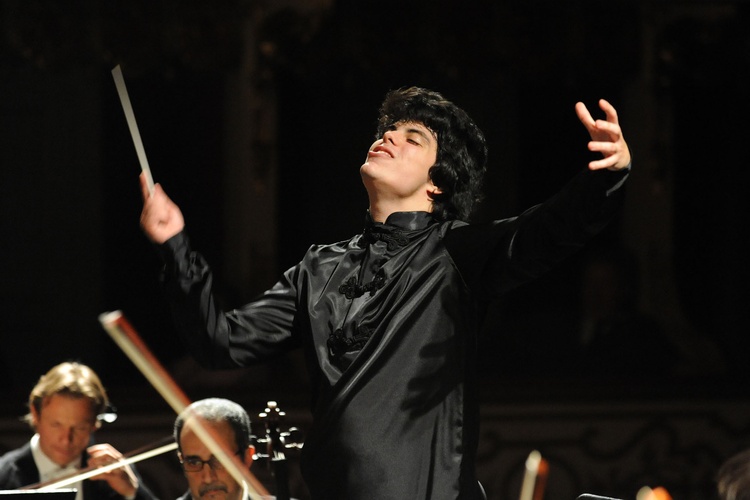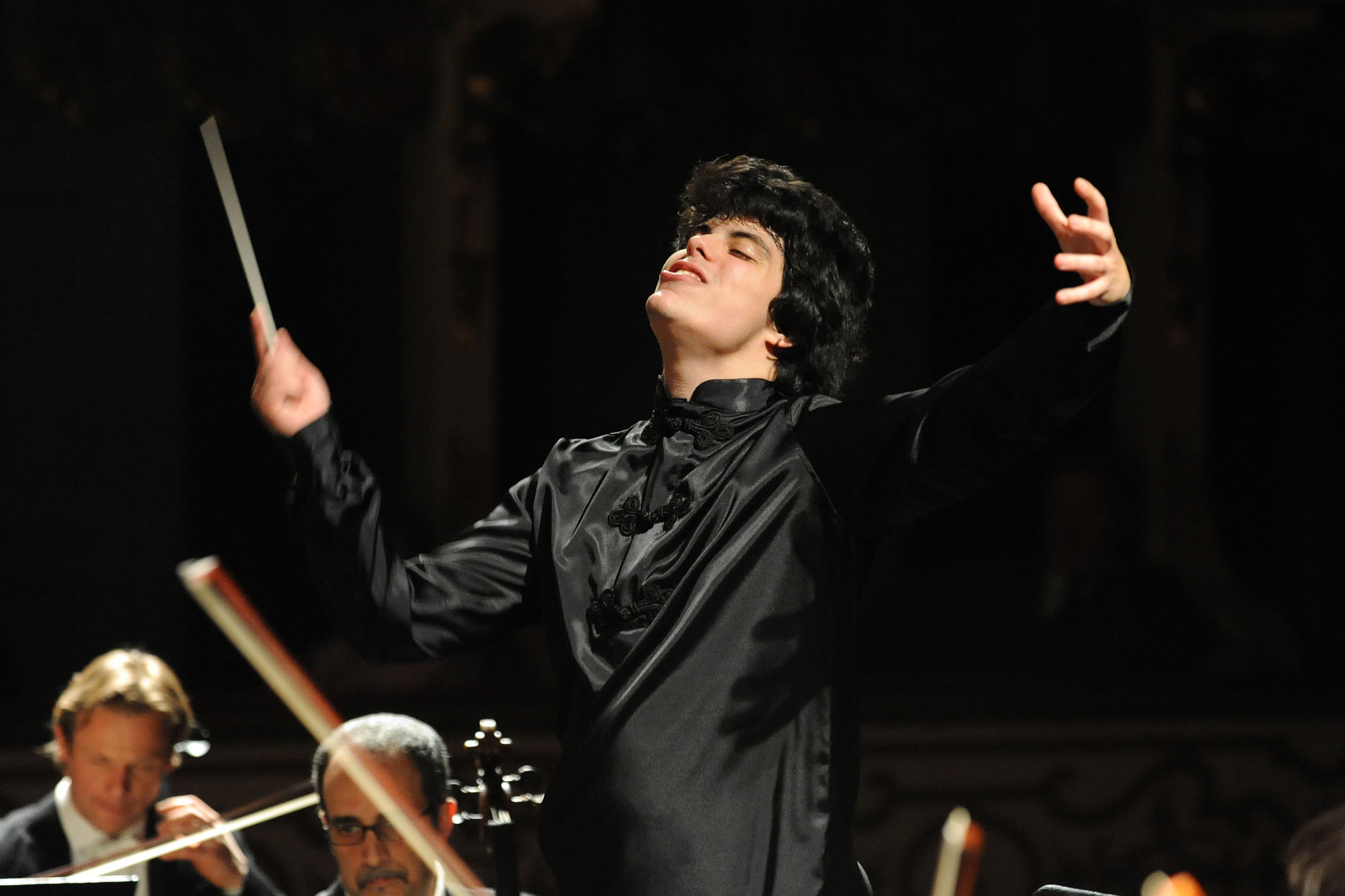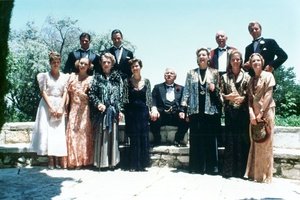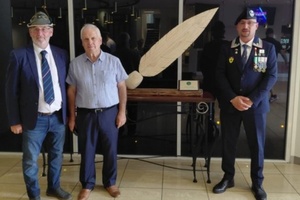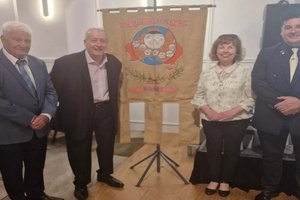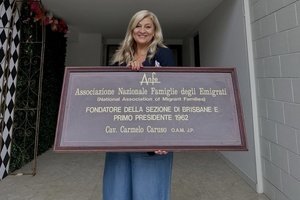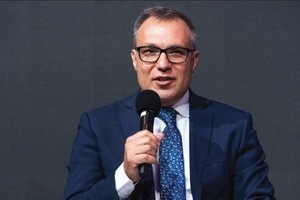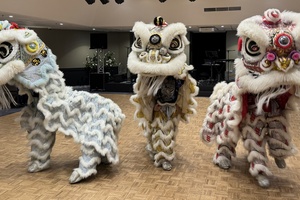For Andrea Battistoni, who has been conducting on the international stage from the age of 19, this “second language” came in the form of music.
“I was lucky to have been born into a family in which music was always important,” he said.
“My mother is a pianist and piano teacher and my father has a great passion for opera even though he is a doctor. Both my brother and I grew up to be musicians.
“Music was the language spoken in our household and I never made a conscious decision to start studying it; it has just always been done.”
Born in Verona, Mr Battistoni is currently in Melbourne to conduct Puccini’s Tosca at the Arts Centre from April 24 to May 10.
Having trained as a cellist at the Conservatory of Music in his hometown, the young musician became fascinated by the role of the conductor when he began playing in an orchestra.
“Discovering the sound of the orchestra from within was a life-changing experience for me,” he explained.
“From then on, I decided to dedicate myself to this profession, because the desire to discover the secrets of this great instrument which is made up of many other instruments, and of the person who guides all of the musicians, became very strong.”
Once graduated, Mr Battistoni took the first steps towards becoming a conductor.
“There isn’t a specific curriculum, especially in Italy,” he said.
“I threw myself into it, creating small orchestras with friends, seeking to understand what the job involved. Even though I wasn’t entirely sure what I was doing, I learnt that I was able to communicate my ideas with the musicians I was working with.”
Mr Battistoni’s window of opportunity came when he began working as the assistant of famous conductor Maurizio Barbacini.
This job led him to Basel, in Switzerland, where he began to gain experience in the theatre.
He was then given the opportunity to conduct a recital of Puccini’s La Bohème.
That was his operatic debut and, as they say, the rest is history.
The music world is small and word of the “youngster launched into orchestra” soon spread like wildfire.
He quickly found himself conducting in revered theatres across the world, including the Deutsche Oper of Berlin, Mariinsky Theatre of St. Petersburg, Palau de les arts of Valencia, Teatro Bunka Kaikan of Tokyo, Semperoper of Dresden, Royal Opera of Stockholm, National Center of Performing Arts of Bejing, Arena of Verona, Teatro San Carlo of Naples, Parco della Musica of Rome, Teatro La Fenice of Venice, Teatro Carlo Felice of Genova, Teatro Verdi of Trieste, Teatro Lirico of Cagliari and Teatro Massimo of Palermo.
Since 2016, he is Chief Conductor of the Tokyo Philharmonic Orchestra.
In 2012, at just 24 years of age, he became the youngest conductor to take centre stage at Milan’s prestigious Teatro alla Scala, conducting Mozart’s Le Nozze di Figaro.
In the same year he published his first book entitled Non è musica per vecchi (It’s not music for the oldies).
Just as the title indicates, the book challenges the idea that opera isn’t music for young people.
“In reality, the stories told through opera are precursors to those which we see in cinemas,” Mr Battistoni said.
“They are of an emotional and sometimes violent intensity which Hollywood stories should envy, with the added beauty of a real-life experience.
“Opera is the most complete and complex type of performance because it is live. Considering that the singers use their bodies to make their voices resound across a theatre without a microphone. When you add the music and the hundreds of people who work behind the scenes to breathe life into these shows, it’s a spectacular and profound form of entertainment.”
Mr Battistoni added that Tosca is the perfect piece as an introduction to opera.
“It has all the ingredients to make it a unique opera: romance, violence, ‘fantasy’, the grandeur of scenes, music by Puccini...and melodies which, once heard, will never leave your memory or heart.”
The performance of this opera which will wow Melburnians from today is set in World War II, 100 years after the original, but still has traditional aspects.
Mr Battistoni will also be in Australia from July to August to conduct Aida at the Sydney Opera House, in a production by Italy’s most famous opera director today, Davide Livermore.
In the near future, the young conductor will divide his time between Tokyo and Europe.
“I will continue my work in Japan as well as returning to many European theatres which are close to my heart, including the Arena of Verona in my hometown,” he said.
Meanwhile, Mr Battistoni whistles songs by Tom Waits along with blues, rock and folk music, because Music with a capital “M” transcends any labels or barriers.
Tosca is showing at the Arts Centre Melbourne on April 24, 26 and 28, and May 1, 5 and 10. For more information and tickets, visit Opera Australia’s website.

